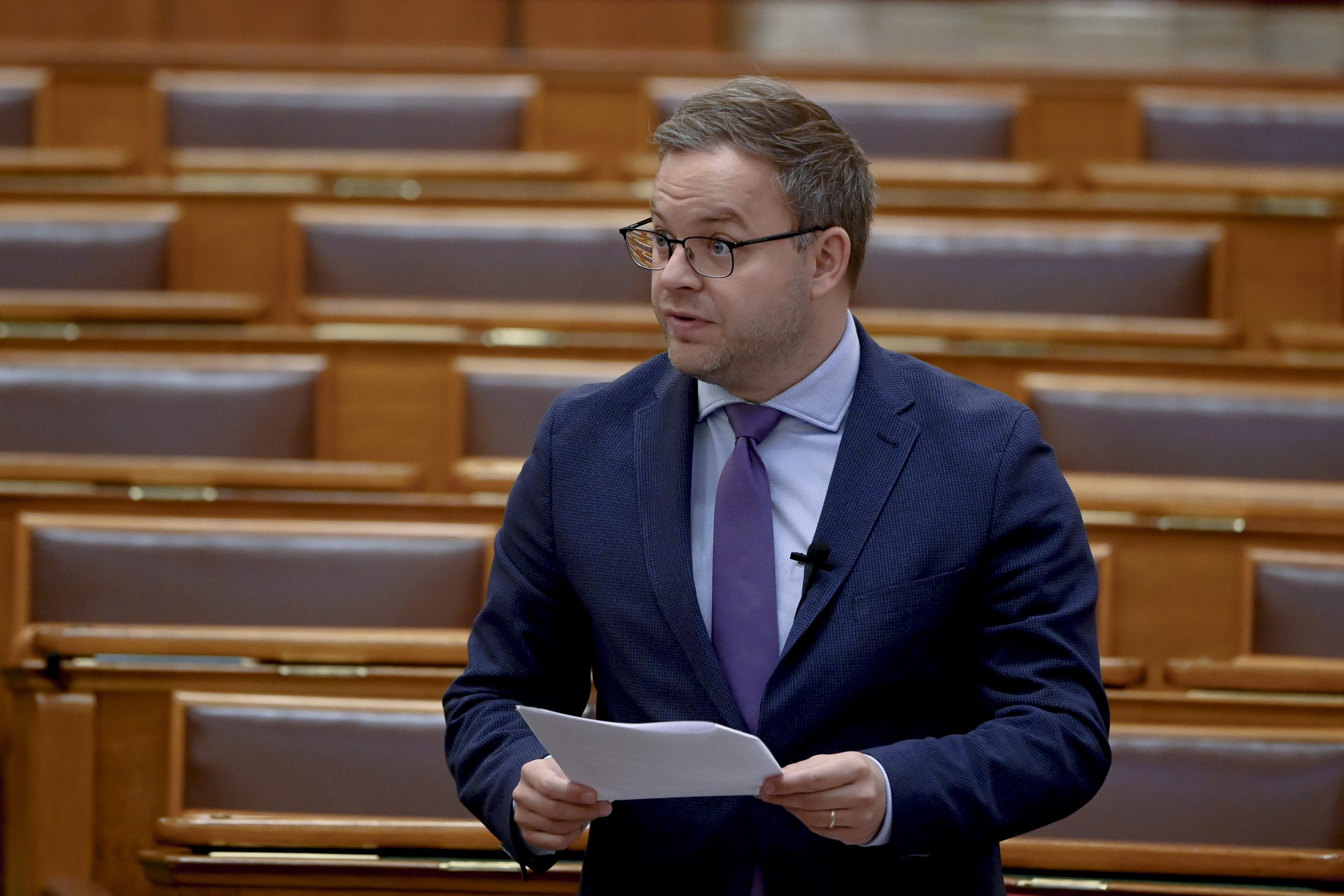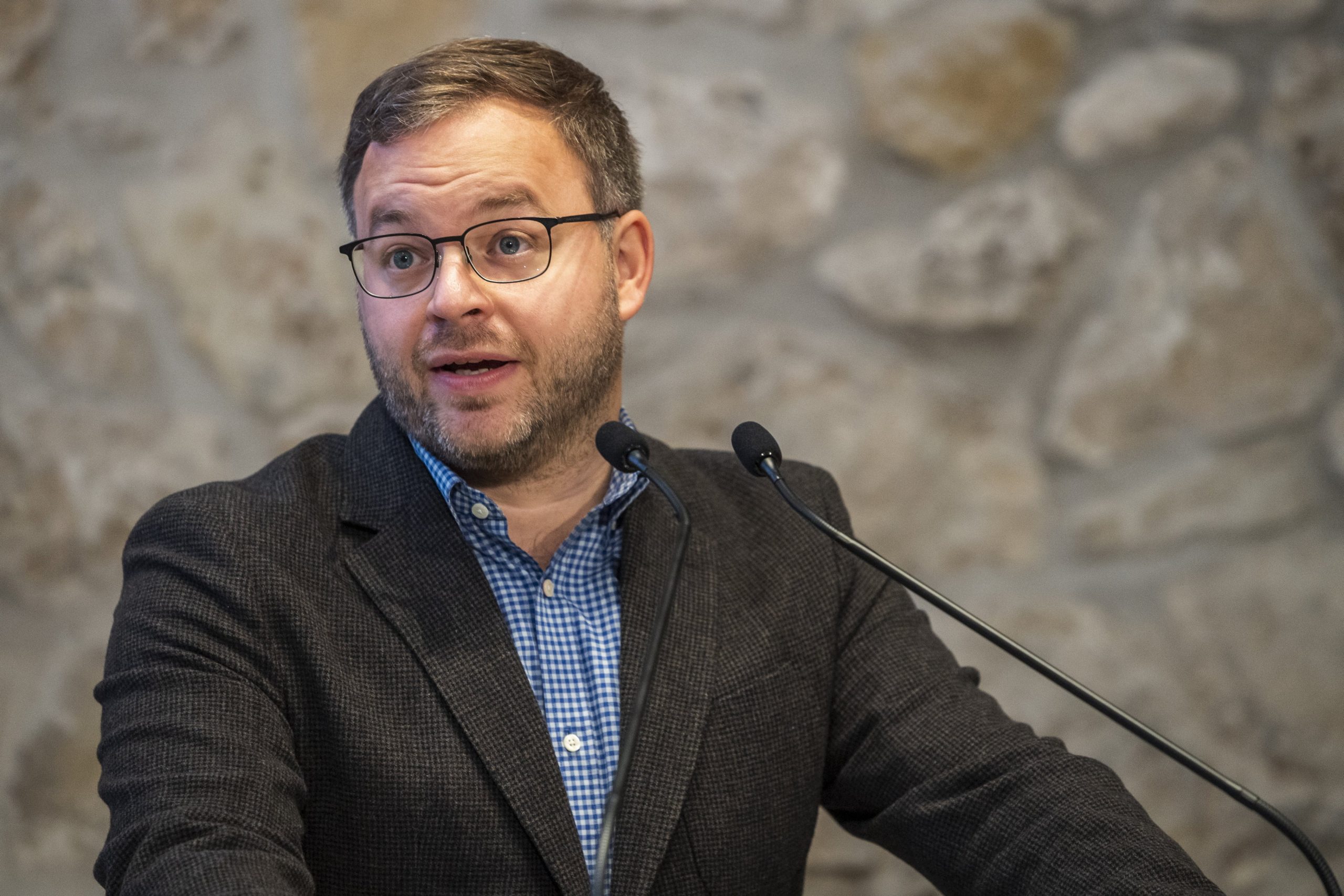
The Hungarian strategy is non-ideological but based on the national interest, so it should always follow the direction that is good for the Hungarian political community. To do this, the government has to take conservative, sometimes classical liberal, and sometimes social-democratic steps, ally with those with whom it does not necessarily agree, and sometimes stand up for those with whom it agrees on ideological grounds, Balázs Orbán, the prime minister’s political director, told MTI in Brussels on Tuesday.
“It is this kind of reflection that is the key to survival in the complex world in which we now live,” he stressed.
Balázs Orbán presented the English version of his book The Hungarian Way of Strategy, at a conference organized by the Brussels office of the Foundation for a Civic Hungary.
In a statement, he said that the need to write the book was prompted by the current situation in Europe. He stressed that Hungarians regained their sovereignty 30 years ago and have been part of European, transatlantic, and global cooperation for almost 20 years. Before that, they had struggled for many years for sovereignty, for the right to decide for themselves, and in such a situation it was difficult to focus on long-term strategic visions, on the governmental goals to be achieved, and to react to the geopolitical environment.
Related article
What Remains of the Polish-Hungarian Friendship? - Conversation Between Polish and Hungarian Politicians![What Remains of the Polish-Hungarian Friendship? - Conversation Between Polish and Hungarian Politicians]()
Zsolt Németh mentioned that for the Poles, the 1980s were the time when many things condensed, which for us Hungarians means 1956, for example. He added: "The past 100 years will not disappear without a trace from the history of Polish-Hungarian relations."Continue reading
In his view, his book helps us to think in a world that is constantly changing and becoming more complex, while keeping in mind our responsibility for the nation and for future generations.
He said that in his work he wrote about how a nation, given its history, geography, social and cultural circumstances, must focus on the national interest in all situations and find the means to do so. He stressed that in a situation where current crises are causing unforeseen changes, a strategic “line manager” who puts the national interest at the center can be of great help.
Orbán also pointed out that European integration is an achievement of generations, but it should not be thought of as a “given,” as it may not survive if the vision is not worked on.
“To do this, however, it is important to understand the countries with which we work together in a political community and in dozens of policy areas, and to make decisions together,” he stressed.
Related article
State secretary Orbán: EU Migration Framework Should Be Replaced
At the Hungary at First “Site” Conference, Balázs Orbán said the current EU legislation on migration is outdated, since the world has changed a lot since the 1951 Geneva Convention.Continue reading
In her opening speech, Kinga Gál, chair of Fidesz’s delegation to the EU Parliament, said that Balázs Orbán’s work is a warning to both Hungarian and European audiences that the “age of naivety” in Western politics is over: we must face challenges that require responses based on reality and experience from the past.
“The author sees the articulation and pursuit of national self-interest not as a sin but as a pledge of life, bringing into the 21st century an important tenet of classical political thought: the articulation of the national interest is the safe and viable path, in times of crisis and in times of peace,” he added.
Kinga Gál stressed that the question for Hungary is not whether it belongs to the West or the East. “We live on the border between the West and the East, this is our home, for which we have fought hard, which we have inherited and which we must pass on responsibly. The book’s strong assertion that West or East is a misleading question, from a Hungarian point of view the two worlds are not separate but interconnected,” she pointed out.
Featured image via Szilárd Koszticsák/MTI

